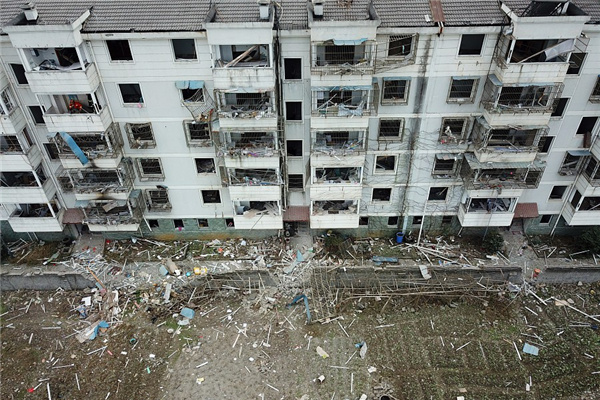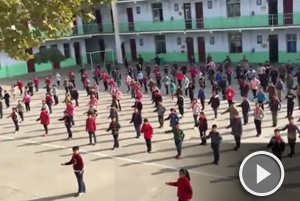Recycling begins with garbage sorting at home
Instructors provide door-to-door guidance to protect environment
HANGZHOU - Starting in 2016, Chen Xuefen, a garbage-sorting instructor in Zhejiang province, has been "talking trash" with the help of her smartphone. She scans the QR code on any garbage bag in a trash can and immediately knows who threw it away.
"We get free garbage bags from our community committee. Each household is given bags with a different QR code," Chen said.
If residents don't sort the waste correctly, instructors come to their homes and show them how to do it properly.
"In the past, we had no idea who had thrown what away," Chen said.
Chen is one of the hundreds of garbage-sorting instructors in Huachuan community, where she and another 10,000-plus residents live.
As volunteers, the instructors are meant to help residents manage their trash, especially in the kitchen, which accounts for 50 percent of all household waste.
"In Huachuan, more than 90 percent of residents currently know how to sort household waste," Chen said.
Built in the 1980s, Huachuan generates about 1,500 liters of garbage a day, which was previously dumped and taken away, and then burned or buried.
Though Zhejiang introduced garbage sorting in 2010, progress was initially less than satisfactory.
Since 2012, Huachuan's public trash bins have been divided by "kitchen waste", "recyclables", "hazardous waste" and "other".
Every year, the community spends about 300,000 yuan ($45,000) on bins and bags to encourage residents to separate their own waste. In 2016, the bags with QR codes appeared.
Yu Fuling, Huachuan's Party secretary, said sorting household waste is of great importance.
"If trash is not sorted, waste cannot be fully reused or recycled, and the disposal process is harder," Yu said.
According to Yu, workers in Huachuan create brochures and give lectures on how to sort garbage, and they organize volunteers to provide door-to-door guidance.
Currently, the rate of household garbage sorting in Huachuan is about 70 percent, Yu said.
In Zhejiang, 11 cities have run waste-sorting campaigns for households, and the disposal rate of harmless urban household waste has reached 99.3 percent. The province has 110 disposal facilities for household waste and more than 1,800 garbage transfer stations. Another 16 disposal facilities are under construction and will be operational by the end of this year, increasing the province's garbage disposal capacity to 70,000 tons per day.
Xinhua



























